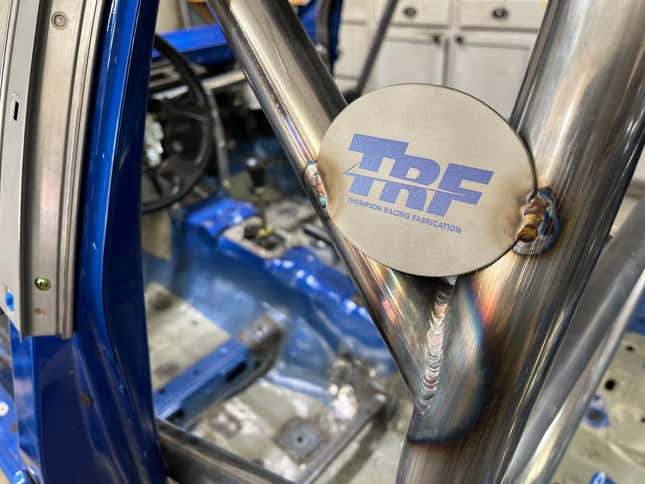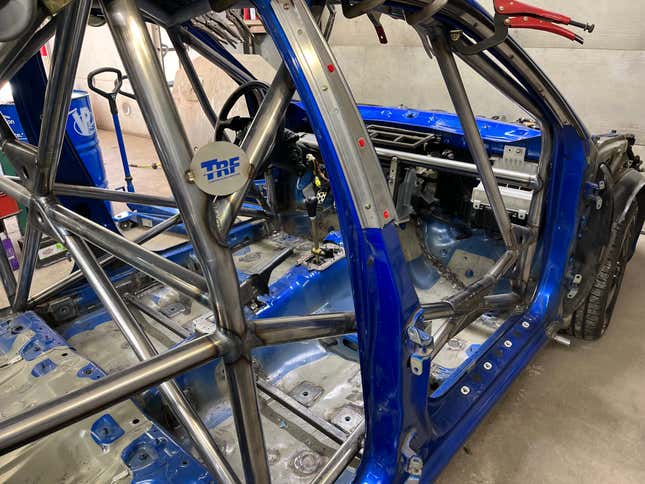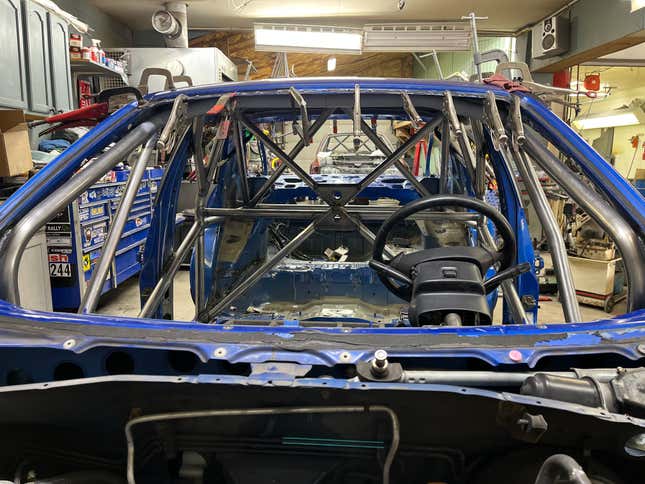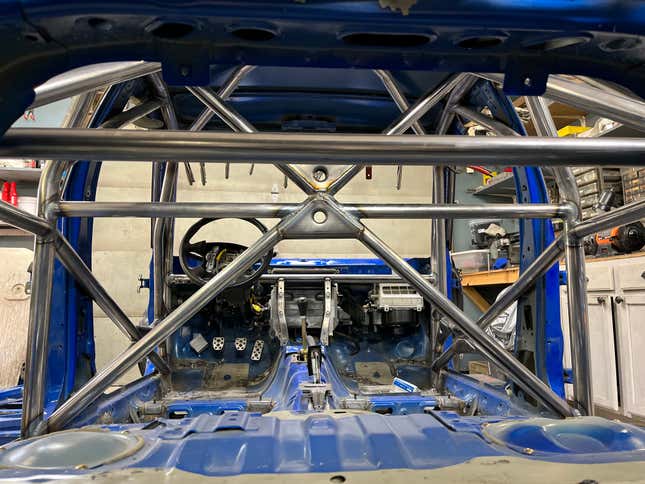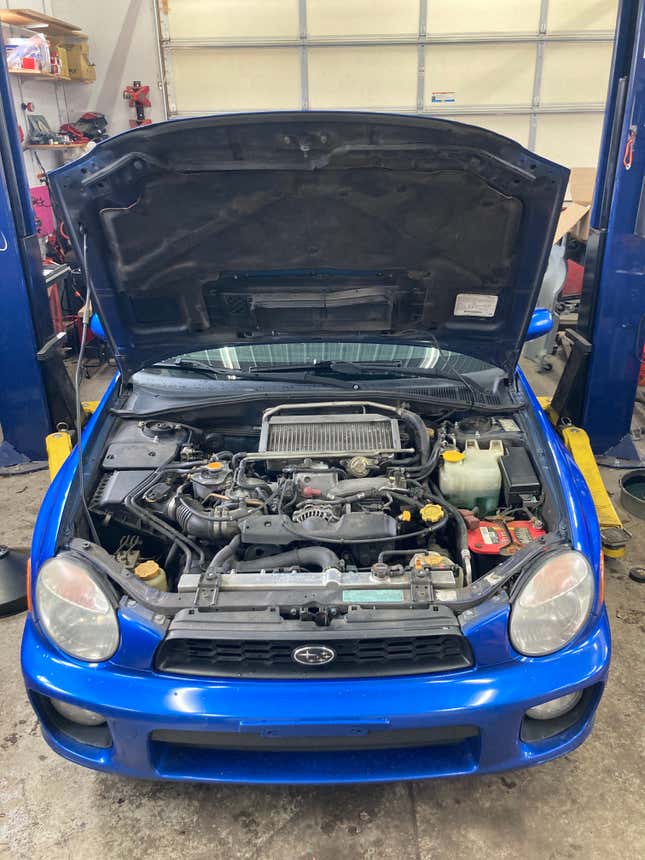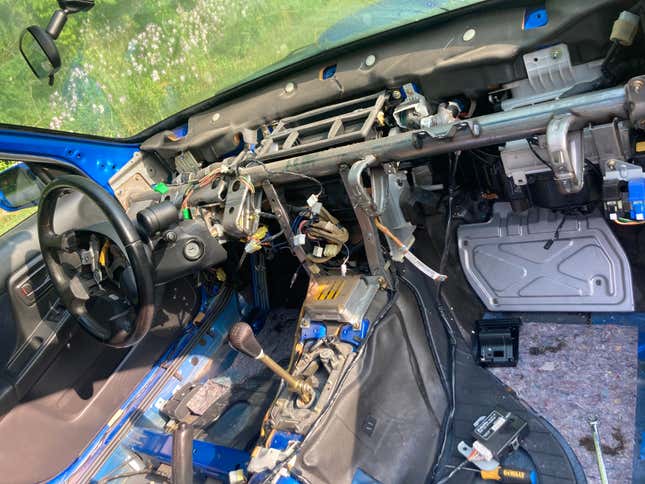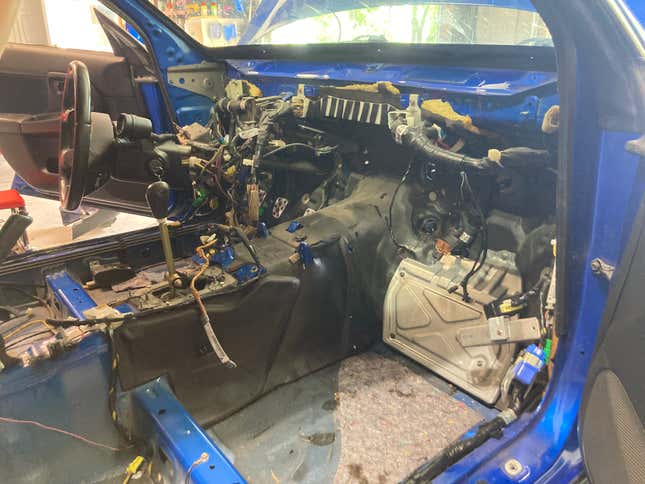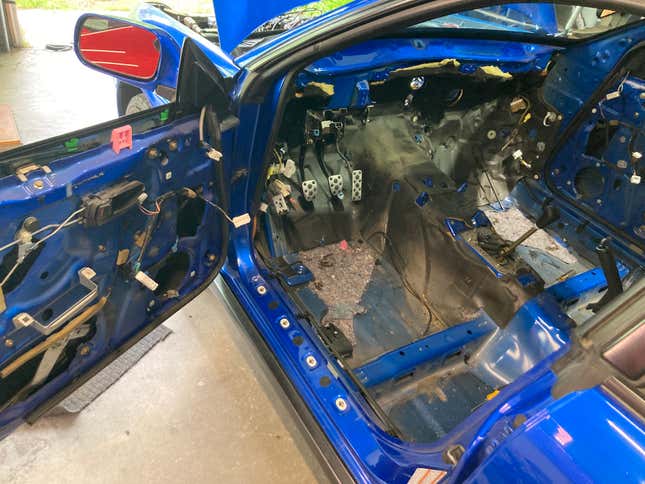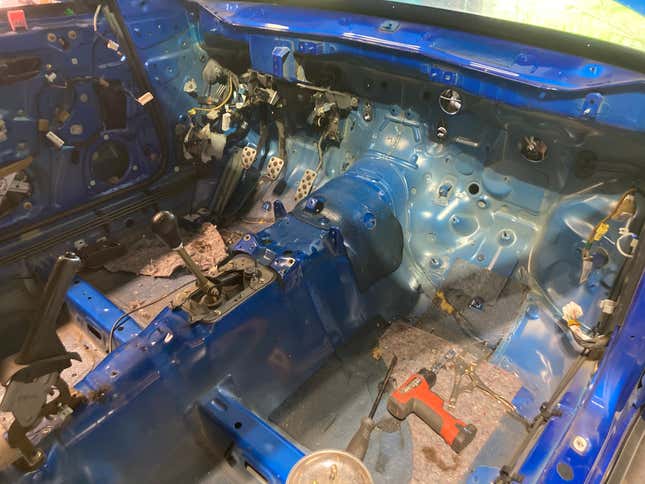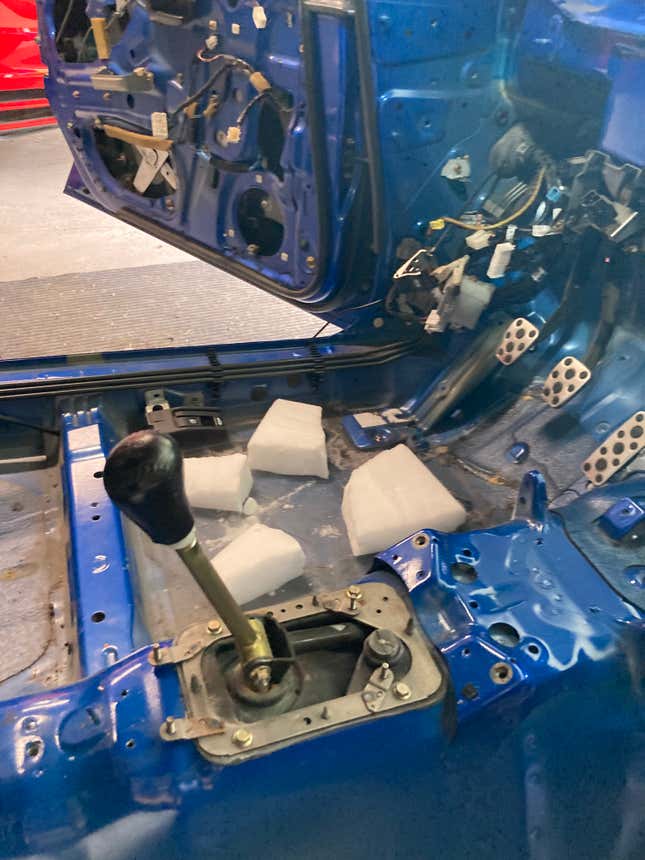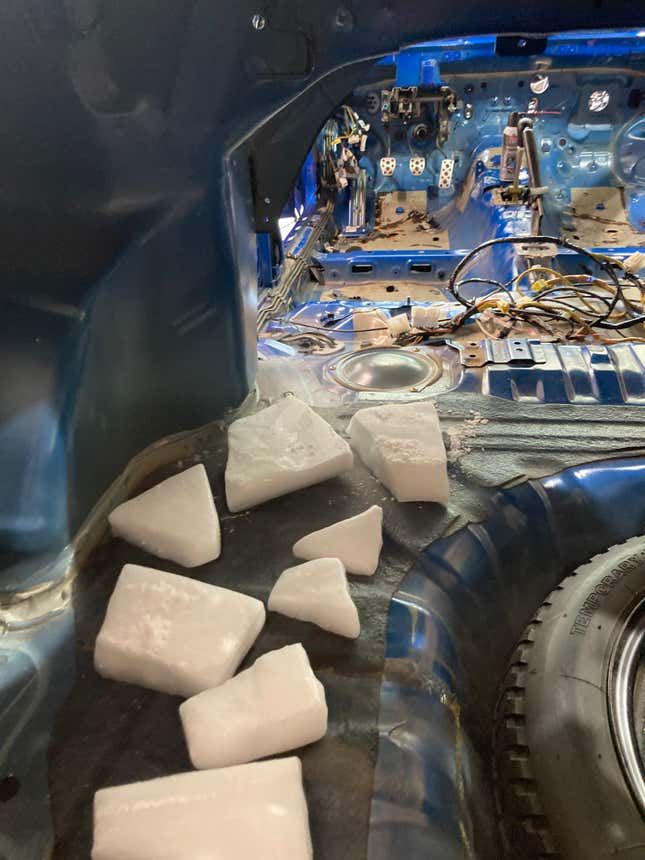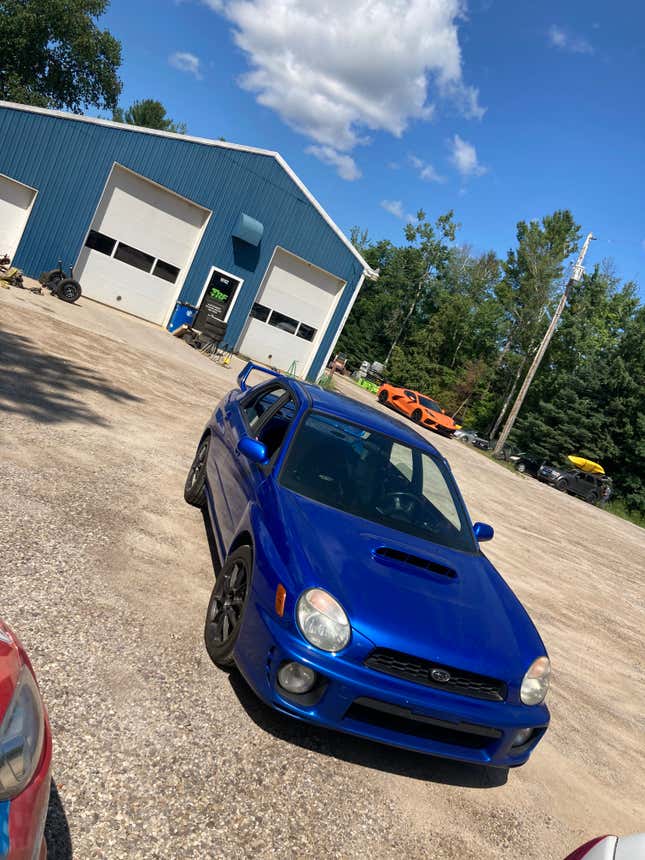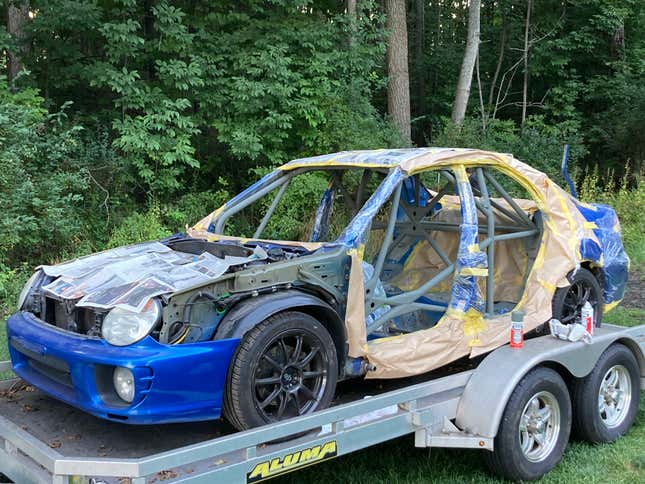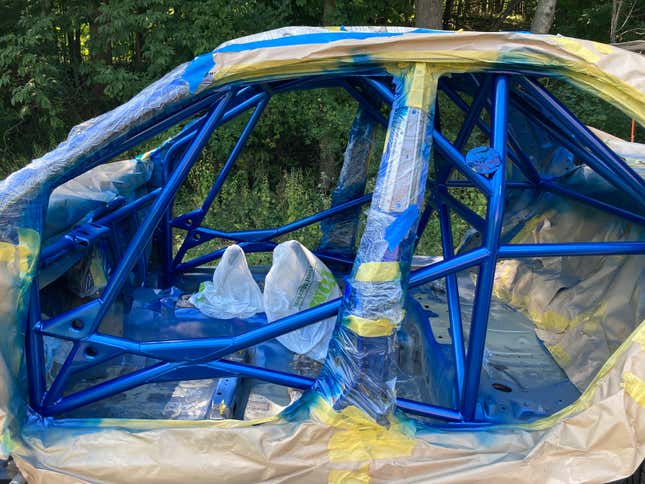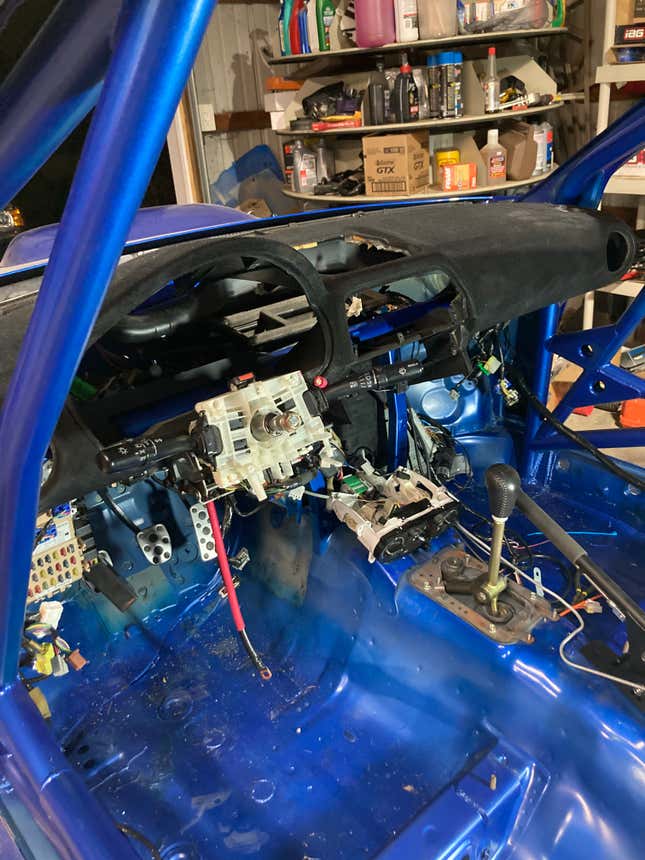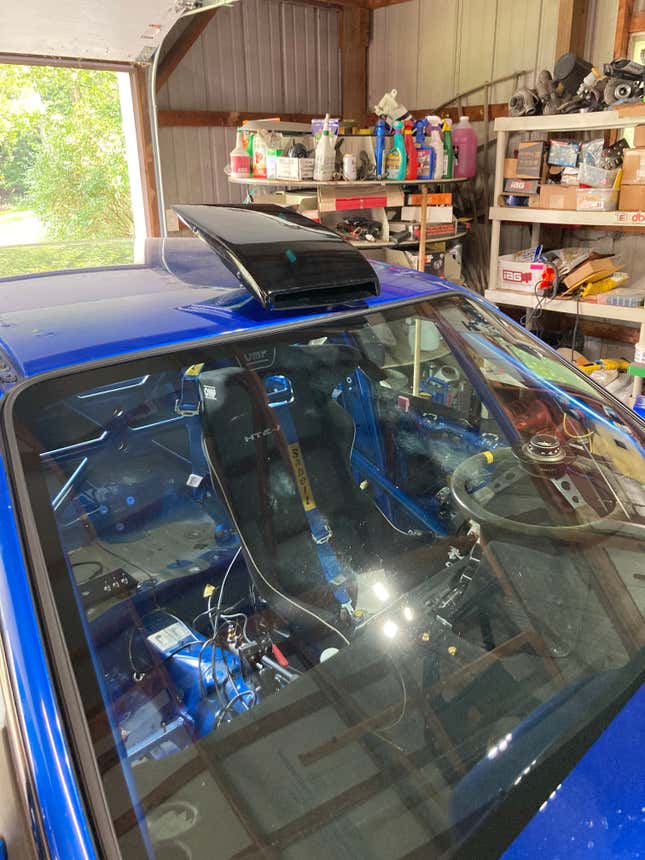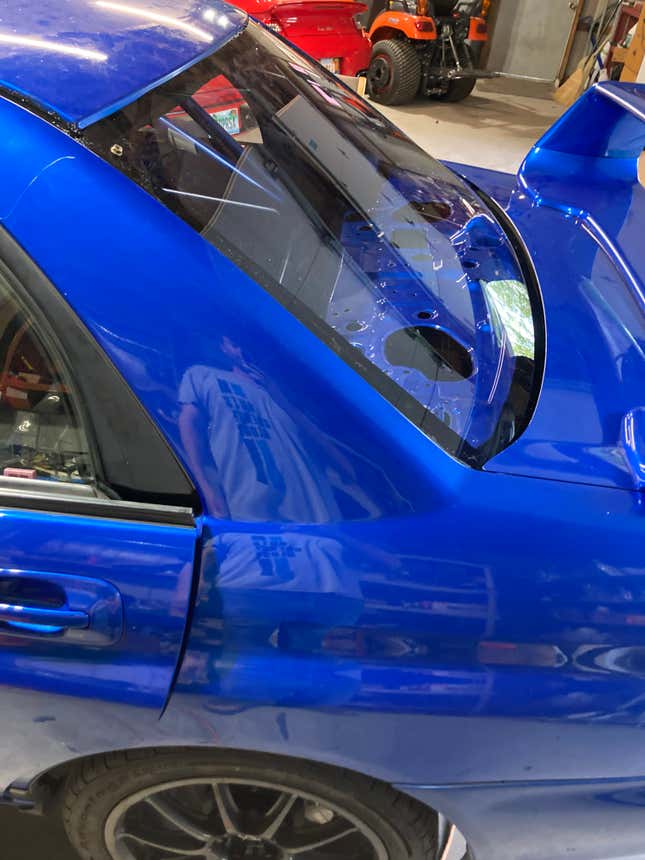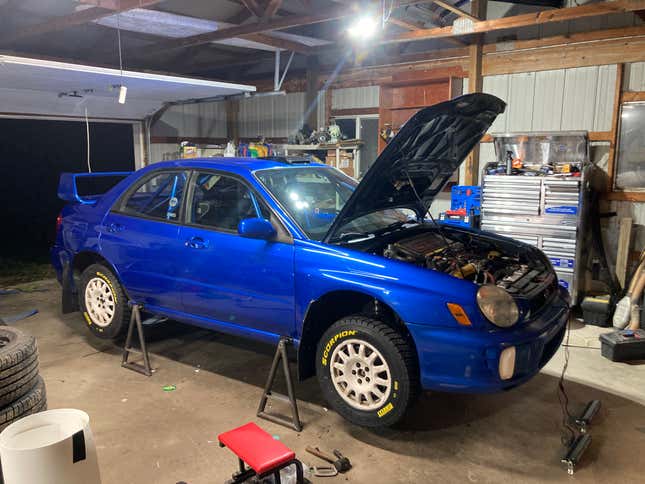Jimmy Pelizzari and his co-driver Kate Stevens are recently back from the Lake Superior Performance Rally, their first outing in a new car. They finished, but not as well as they’re used to, having risen through the ARA ranks from novices struggling in a cool but snakebit Mazda 323 GTX to regular podium finishers in a GC 2.5RS. The new car was a 2002 Subaru WRX they’d just finished building. Before it was hurtling down a rally stage, it was the nicest Bugeye I’ve seen in years.
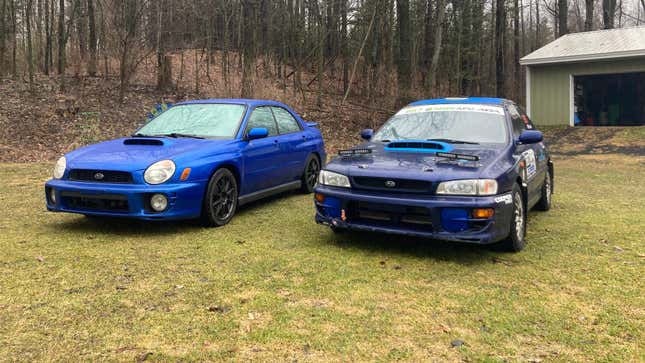
A few months ago Jimmy texted me: “I think I’m gonna get a Bugeye.” In my head, I thought Bugeye Sprite. I asked him what he wanted to do with it, and he said “take it rallying.” Jimmy is a tall, broad midwestern type, huge by race driver standards. I briefly imagined him trying to make traction in deep snow at 15 miles an hour in an old British sports car, helmet entirely proud of the windscreen, and turned back to whatever I was doing. A couple hours later, it dawned on me that he meant a Bugeye WRX.
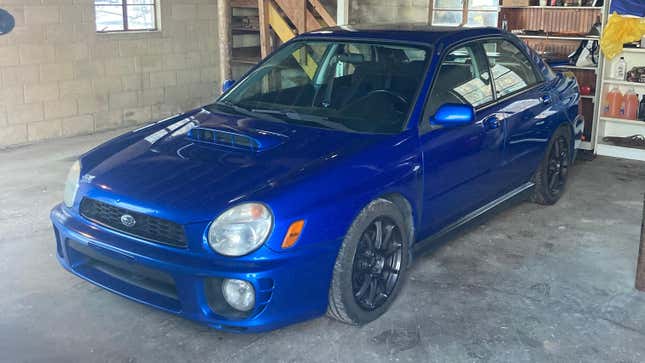
A Bugeye WRX made a lot more sense, but he was already deeply invested in his current car, and the stubborn moron in me wondered why he’d decided to move on. Over a short period, Jimmy developed the JDM STI-swapped GC 2.5 RS into something capable winning ARA events, but it was a little rough when he bought it and after years of rally use, he says it was tired:
“We completed around 22 rallies with it in and around Michigan. Our best performances were at our local SnoDrift rally where we’ve won the regional rally since 2019. When the car was non-turbo (NA4WD class), we were the fastest in class with some great competition which feels pretty good. The NA engine with the right gearing is the car to have on the low grip conditions at SnoDrift. You carry so much more speed into, through and out of turns without the restrictor we have to run with the turbo. It’s also much easier to keep traction and not over power the tires.”
Since moving to the turbo engine, we’ve had good stage times but it coincided with broader issues. Which is mostly why I decided to move to the new GD chassis to put money into a long term project.
The GC was a great car but after our last SnoDrift I decided to move to a new chassis. The rust was becoming a bigger and bigger factor – we’d replaced the fuel tank, the exhaust was tired and flopping around and aesthetically it’d become a bit worn. It’s a great little car and hopefully has a few more rallies in it for someone new to the sport but ultimately if I was going to keep putting resources (time and $$$$$) into rallying I wanted something that would last.
I’ve also wanted a Bugeye since I was 14. So that may have been a factor in the car I bought.
Stage rally is a brutal thing to do to a car. Even with underbody protection, it doesn’t take many events before the constant sand-blast abrasion of stones and dirt convert control arms, brake calipers and just about everything else into metal dust. There was rust, too:
It was a Michigan car which is a nice way of saying way too rusty to put money into. While it didn’t seem too bad at first once the rust would plague us a couple of times resulting in an all new gas tank. There’s nothing like being parked next to Ken Block at the rally start only to have a friend let me know there was a lake of gas under my car.
It’s really shocking how fast big structural elements of a rally car get reduced to nothing. Just as the car began to show its potential it was time to start thinking of something else.
That something else was this pristine Bugeye. When it rolled into my shop for the first time, gave it a look and immediately started making a half-assed effort to talk Jimmy out of stripping it. I suggested we install his JDM motor in the engine bay and list it on BaT, then use the proceeds for an even better rally car build. I can’t be alone in believing that these cars have a future as collectibles, and this one, despite displaying high mileage seemed worthy of preservation.
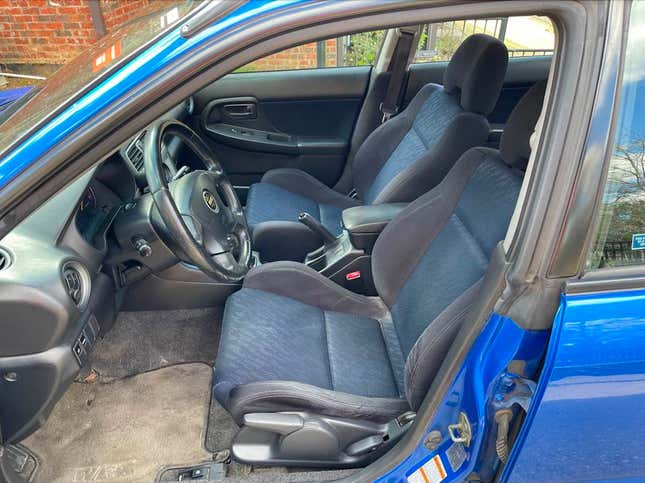
There was a solitary dent in the floorpan, and the driver’s seat could have used a little more cushion, but that was about it. The paint was perfect, and original Monroneys were included. The powertrain was unmodified, and there wasn’t a speck of rust to be found anywhere. The engine did have 330,000 or so miles on it and was leaking oil pretty heavily, but other than that, it was like I said, the nicest Bugeye I’ve seen since they were newish. But we started tearing it down anyway.
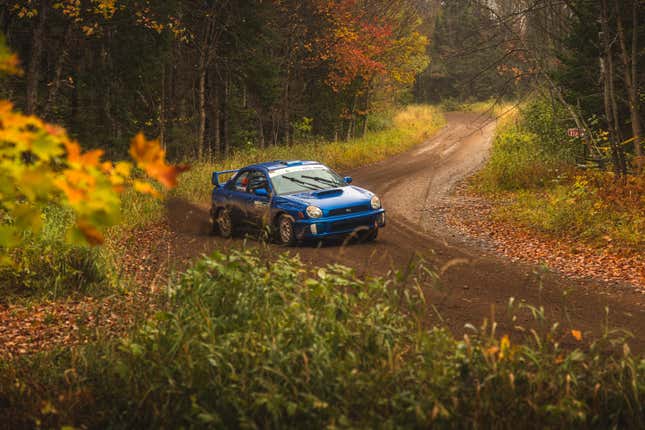
There can’t be too many Bugeye WRXs in this kind of shape. As we know, the lifecycle of a fast Subaru is fraught with risk. Like a mother duckling, Subaru had to have a lot of little Bugeye babies for a handful to survive to adulthood. Luckily, that is the case. In 2002, 22,910 WRX hatchlings found homes in the US after a much-hyped launch. Surely a dozen or so were babied by their owners and are now awaiting their turn on BaT. Surely there are some owners who made the classic dumb guy move of never driving their car in the hope that it would become a blue chip collectible. (Sorry, lost track of the duck metaphor.) I asked Jimmy if he felt any regrets, this is his answer:
It was (still is!) a beautiful car. A single owner, 300,000 (!) mile original engine, zero rust, zero food eaten in it, no vape Subaru. The previous owner in Alabama had bought it new and had religiously maintained it. I used up my points and flew down to drive it back to Michigan. For sure, there were a couple moments when it had the rally engine, trans and diff with the full interior where I thought about keeping it that way. I’d always wanted a blue bugeye from when I was about 14 but I’ve wanted a rally car since I was about 11.
It only takes about 5 seconds on stage to never regret a thing. There’s nothing like driving a rally car at speed through the trees and that’s saying nothing about the incredible community that supports you and your odd hobby. 50mph through the trees makes 150mph on a straightaway somewhere feel like a grocery run. There are more than enough rally or safari tribute cars out there on the road and to stick it on an auction site would have felt wrong. The original owner actually suspected that I planned to tear it apart. When I told him it was going to be a well built rally car he said something to the effect of “Hell Ya, i’m glad you’re actually going to do something with it”.
I don’t think Jimmy was under any kind of obligation to keep this thing from being ground away on various fire roads around the Midwest, but it did feel weird watching such a nice car come apart. The flip side of that of course, it’s that every car’s highest calling is to die as a winning race car.
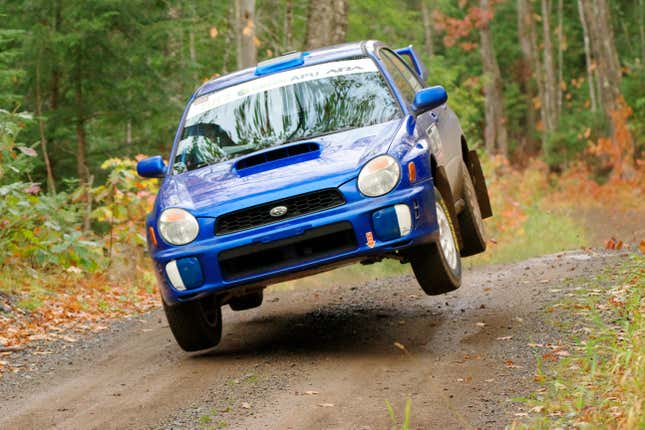
You can click through the images below and get a sense for the scope of the project. Jimmy, Kate and a few friends did everything but the chassis/cage work, and because it started off so nice, it should prove to be a good rally car for them in the longterm.
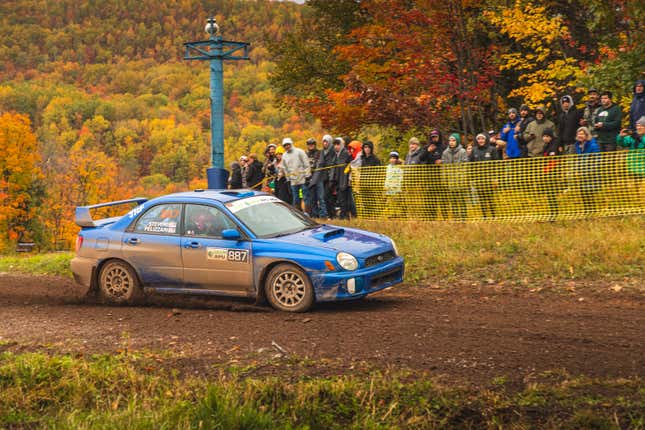
What do you think? Should this thing be enduring a long PDR session and getting prepped for BaT, or is it better off spitting gravel?
